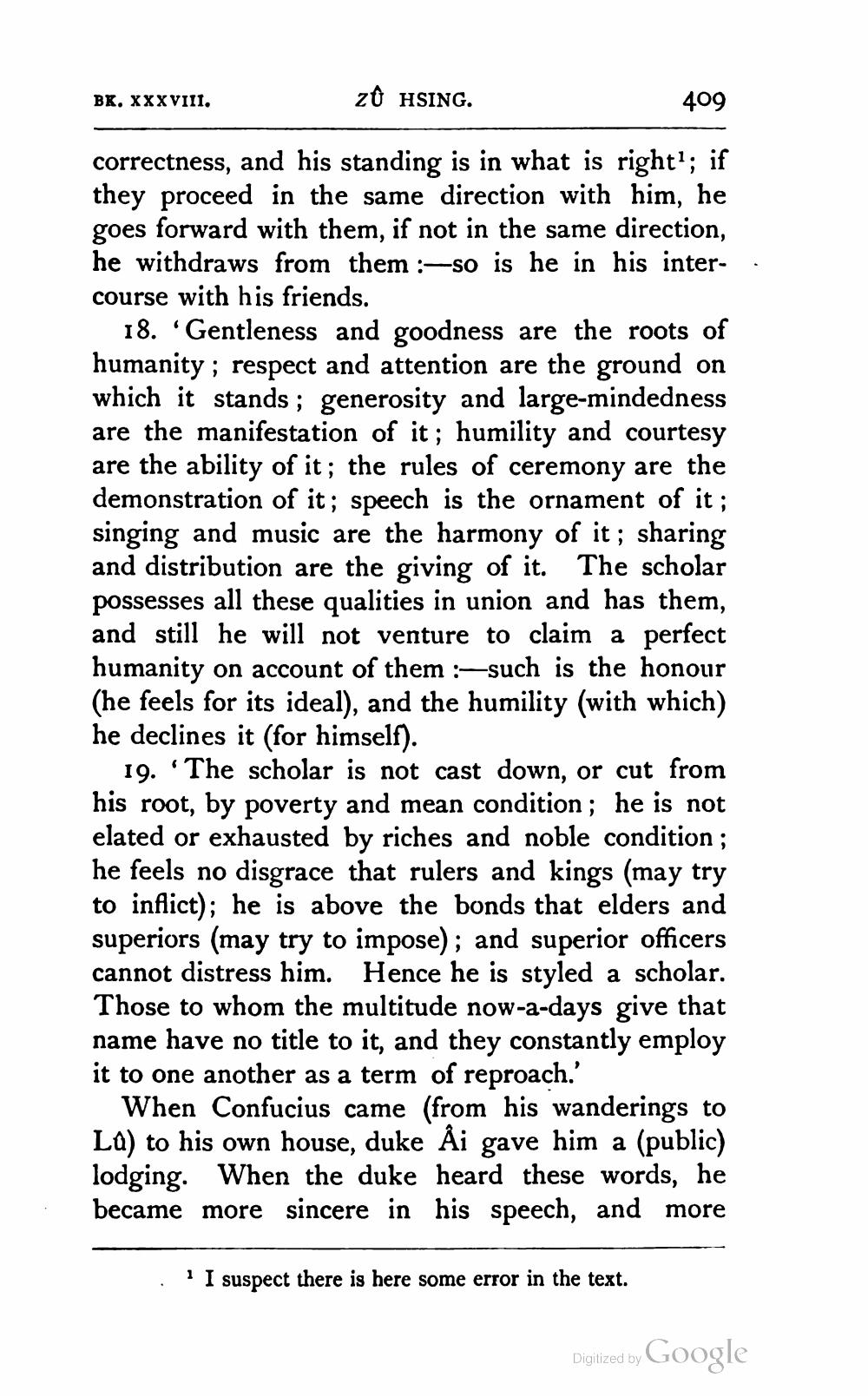________________
BK, XXXVIII.
ZŮ HSING.
409
correctness, and his standing is in what is right?; if they proceed in the same direction with him, he goes forward with them, if not in the same direction, he withdraws from them :-so is he in his inter- : course with his friends.
18. 'Gentleness and goodness are the roots of humanity ; respect and attention are the ground on which it stands; generosity and large-mindedness are the manifestation of it; humility and courtesy are the ability of it; the rules of ceremony are the demonstration of it; speech is the ornament of it; singing and music are the harmony of it ; sharing and distribution are the giving of it. The scholar possesses all these qualities in union and has them, and still he will not venture to claim a perfect humanity on account of them :-such is the honour (he feels for its ideal), and the humility (with which) he declines it (for himself).
19. The scholar is not cast down, or cut from his root, by poverty and mean condition; he is not elated or exhausted by riches and noble condition ; he feels no disgrace that rulers and kings (may try to inflict); he is above the bonds that elders and superiors (may try to impose); and superior officers cannot distress him. Hence he is styled a scholar. Those to whom the multitude now-a-days give that name have no title to it, and they constantly employ it to one another as a term of reproach.'
When Confucius came (from his wanderings to La) to his own house, duke Åi gave him a (public) lodging. When the duke heard these words, he became more sincere in his speech, and more
i 'I suspect there is here some error in the text.
Digitized by Google




